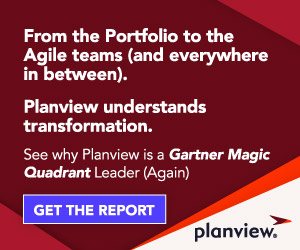Capabilities-based planning originated in the fields of defense and military planning, and it’s understandable why. In this area, operators will never have full information about what threats or risks they face, so capabilities-based planning focuses on ensuring they have the ability to adapt and succeed in the face of change and meet whatever challenges may arise. It shifts the paradigm from planning for a situation you can’t control to addressing what you can.

In business, the basic concept remains the same, with proponents of capabilities-based planning seeking to monitor, assess and improve their capabilities as opposed to the at-times random and incomplete nature of risk assessment and planning for specific contingencies. As a capability is the ability to affect an outcome, react to an input, or change an effect developing capabilities is, in essence, all about improving a company or team’s potential to deal with any particular situation, regardless of what it’s about.
How capabilities-based planning improves agility
Measurement of possibilities
When assessing new potential projects, such as applying for tenders in new fields or introducing new technologies, one of the greatest decision-making factors a firm will use is its prior experience in doing something similar. This will inform its opinion about timetables, costs and the possibilities of success. Especially for smaller or newer companies, this can be very constricting and can leave them circulating in the same pond despite high competition, lack of suitability or low margins.
By assessing new projects more in terms of the capabilities of the team rather than simply what they’ve done in the past, a company becomes more business agile and capable of reacting and rising to new challenges that could prove better for the firm.
Improving team reactions and flexibility
For organizations practicing Agile project management, the benefits of capabilities-based planning are clear. Rather than developing teams on a case-by-case basis to try and deliver specific projects and deliverables, teams are built around capabilities, enabling them to respond to new demands as they arise, whether they were known or planned for previously or not. This flexible reaction model feeds into the decentralized management structure Agile project management calls for.
Better focus on alignment
A team that is focused on its capabilities can work towards improving those core operational skills and becomes more aware of its function and direction. One of the major drawbacks of decentralized management can be how easy it is for teams to drift from the overarching organizational targets, both in what they do and how they do it.
With software development, for example, a team could understand that the capabilities it should focus on improving are API development and existing product configuration. Even if they mostly work on accounting software, that doesn’t make them solely accounting software developers. A focus on capabilities rather than outcomes maintains the flexibility to change direction if necessary For instance, if the accounting department gets outsourced or a new, more valuable client comes in, they will be comfortable in applying their core competencies.
Increases breadth of solutions
When addressing problems such as dealing with inefficient processes or recurring issues that are slowing the team down, the iterative process, while gradually improving outcomes, is not necessarily the quickest or most efficient mode of implementing change. By improving capabilities, a team also broadens the spectrum of possibilities for solutions that can be implemented. A truly Agile and reactive team will thus not be constrained by trying to iteratively improve a process that may already be at its ceiling and instead be more open to casting the net for alternative, and possibly more innovative solutions.
As part of your project planning and monitoring, capabilities-based planning can give great insight into what potential your team has and allow you to get a different insight into project estimation. Using industry-leading project management software like Planview AdaptiveWork allows you to pull all of that information together to form a unified outlook on your team’s capacity and performance. To find out more about how our software can help your team work better, get in touch with our team today for a live demo.









